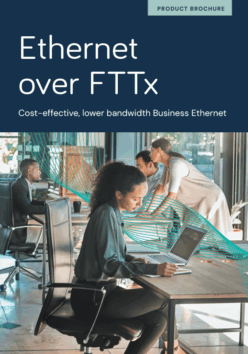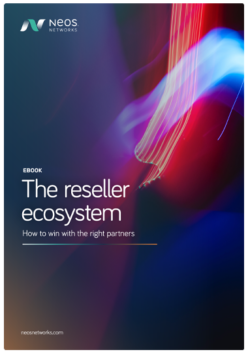What is Ethernet VPN?
An Ethernet VPN is a virtual private network using an Ethernet connection, linking multiple sites without using the public internet. They are, essentially, extended local area networks (LANs), often used to connect companies’ headquarters, branch locations and data centres.
As these VPNs go through Ethernet networks, they benefit from high bandwidth and synchronous uploading and downloading. With various types of Ethernet networks on the market, businesses can select the one that meets their requirements for capacity, bandwidth and budget.
Many companies use an Ethernet VPN to quickly transport large volumes of data internally, avoiding the potential security risks of the public internet.
Get high-bandwidth business Ethernet
How Ethernet VPN works
Ethernet VPN uses a Virtual Private LAN Service (VPLS) to provide any-to-any private virtual networking between a company’s LAN sites. A bridge is built between them, across a virtual network, to create the VPN. Each site is connected to the managed service provider, which links all the sites together.
It is commonly used to transport variable loads of different traffic types, including data, voice and video. Users can flex bandwidth as needed, prioritising and lending greater bandwidth to applications that require more.
What are the benefits of Ethernet VPN?
Of course, the main attraction of any virtual private network is that it bypasses the public internet and all its inherent security risks. Ethernet VPNs are sometimes chosen because they build upon a company’s existing Ethernet network. Most businesses already have an Ethernet connection in place, so there’s little additional infrastructure investment.
Nonetheless, Ethernet networks offer high, reliable bandwidths, which can be easily tweaked to fit a business’ needs. Ethernet VPNs offer simple scalability generally, with network add-ons easy to implement and the ability to add or remove locations.
What is the difference between VPLS and EVPN?
Quite often, these are the same thing. VPLS stands for Virtual Private LAN service and provides an any-to-any Ethernet connection service between multiple customer sites over a wide area. You could think of it as a big Ethernet switch that all your locations connect to, allowing them to communicate directly with each other at Layer 2. VPLS is a technology specific term which is used across the telecoms and network industry. EVPN (or Ethernet VPN as it is sometimes called) is often the service or product name used by a service provider to describe their VPLS product. Like all products and services, a VPLS from one provider may not have all the same features and functionality as a VPLS from another service provider. Using different product names is a way of distinguishing them from one another.








